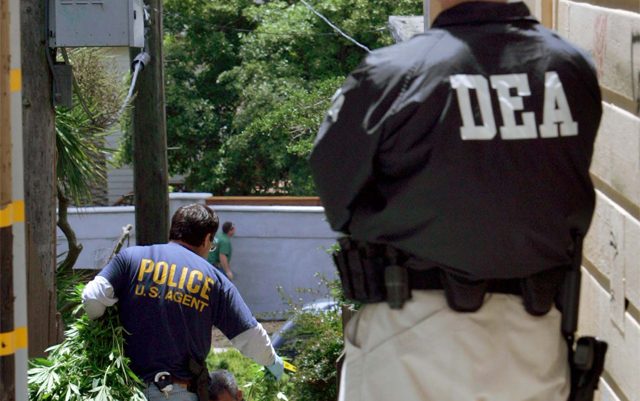Good things can come along with cannabis legalization, even if there are bumps in the road. Arguably the most positive outcome of legalization is that otherwise innocent people are no longer arrested for possessing the plant, which in turn can free up law enforcement resources to pursue the real drug criminals who are committing actual crimes. According to a recent report from High Times, that’s exactly what appears to be happening.
The High Times report contains numbers gathered from the Drug Enforcement Administration and the Department of Homeland Security regarding the seizures of illicit cannabis. Obviously, these reports are not exact science, but they do seem promising and show that perhaps these federal agencies are trending in the right direction – even if the U.S. government continuously drags its feet when it comes to ending prohibition.
With assistance from Green Wave Advisors, the High Times report estimates that cannabis sales in the U.S. totaled $8.2 billion, with 34 percent of those sales coming from the state of California. The report wasn’t completely positive, as it was sure to point out that unlicensed sellers make up the predominant part of that 34 percent market share in California.
“In California, the unlicensed players represent the most predominant section of the market right now. The hardest thing to do is to try and develop causality of why the illegal markets seem to be shrinking. Is it because there are now roughly 30 states with legal cannabis? Is it a function of the DEA and homeland security not prioritizing cannabis as much as they once did, given the fact that the Rohrabacher–Farr amendment gives them less latitude than what they once had?” the report says.
While this might seem like there are more questions being asked than answers, the numbers are clear – total illegal cannabis confiscations by federal agencies are steadily declining each year. The confiscations declined by 35 percent from 2016 to 2017, and those figures were even lower when compared to previous years.
Again, it’s next to impossible to tell why these federal confiscation rates are declining, but experts like those at Green Wave are saying this is a positive sign. As medical and recreational cannabis programs continue to have successes, we should only see these figures decrease, indicating that the federal government is either finally starting to listen to the will of the people, or being forced to change due to different landscapes at the state level.






